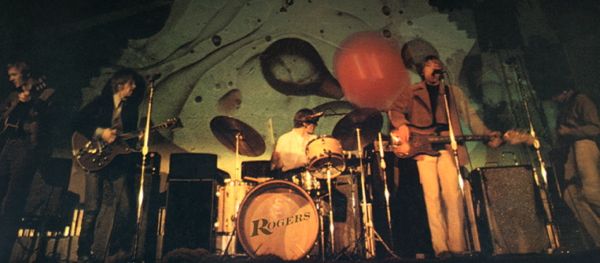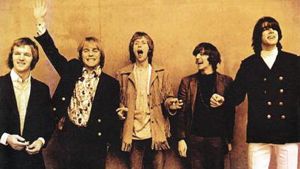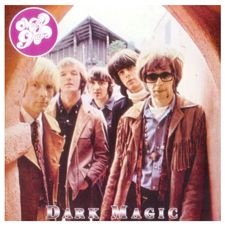
Moby Grape had it all, in those early days. The look. The attitude. The Bay Area vibe. And that weird whimsical name that no one ever forgot.
But when the San Francisco band’s debut album surfaced in 1967, it seems they’d forgotten the psychedelic music.

The self-titled album instead was packed with well-crafted singles that anticipated alt-rock. Songwriting so strong that Columbia Records was moved to release five songs to Top 40 radio, all on one day. Today, the band is largely remembered for that majestic album and those concise classics.
When NPR looked back in 2012, here’s how it characterized the group: “When other San Francisco bands were stretching out with long psychedelic jams, Moby Grape was producing catchy three-minute songs that were composed, played and sung by each member.”
Yet there exists an intriguing alternate history for Moby Grape.
Guitarist Jerry Miller recalls that the band’s early shows featured lengthy psychedelic workouts that were the rage in the Bay Area.
Band member Skip Spence had played guitar in an early version of sonic adventurers Quicksilver Messenger Service (before joining Jefferson Airplane). For Moby Grape, the quirky songwriter came up with an expandable piece called “Dark Magic,” which the act served up to drug-fueled audiences at San Francisco’s rock palaces.
As found on the 2010 Sundazed collection “Moby Grape Live,” “Dark Magic” runs just over 17 minutes. That take was recorded at the Avalon Ballroom on New Year’s Eve, 1966.
Other band members have pointed out that Moby Grape might have found a place in the pantheon of psychedelic rockers had “Dark Magic” appeared on the debut album. For better or worse, of course — it’s an intriguing counterfactual given the band’s subsequent run of bad luck and blown opportunities.

Moby Grape never released Spence’s song on a studio album, and the MIA acid-rock epic achieved legendary status over the decades. The jam provided the title for a popular bootleg double album (pictured, left), whose first disc included a shorter Winterland performance from 1967. The Sundazed album was “Dark Magic’s” first official release.
The song is mostly a raga-rock workout for guitarists Miller, Spence and Peter Lewis. As pioneering psychedelia goes, it’s both bracing and engaging. Spence howls his spartan lyrics over the proceedings — an unsettling portent, perhaps.
The Grateful Dead and Quicksilver both chose to use studio wizardry with their in-concert epics before first springing them on the record-buying public (see “Anthem of the Sun” and “Happy Trails”). “Dark Magic” has no such sweetening, and as such it remains a big gulp of hippie white lightning. It’s more than an artifact of those tripped-out days, and less than a lost masterpiece.
“Dark Magic” is widely considered a Skip Spence song, although it is credited to the entire band. The epic reportedly was performed at his memorial service.
A great song as well as an eerie sign of trouble on the horizon for the band, Mr. Spence and Mr. Mosley in particular.
Lets not forget their ‘Grape Jam’ album with lenghty improvisations being the cornerstone for many other jam bands of the era.
Moby Grape was one of those “shoulda made it” bands. Even Jerry Garcia touted them as “really good,” and one of the bands to watch, back in ’67.
Loved seeing them back in the day, and the Sons of Champlin – and Quicksilver …
Thanks! This (video) was from the rehearsals for their still unreleased reunion album in 2009 “The Real Potato.” It includes a studio take of Dark Magic!
Their melodies were just so damn good and vibrant. Not psychedelic but of the hippie era. Spoke to the heart.
Interesting thought. That said, I’m among those who think that first album – aside from somehow managing to anticipate several later styles of music – is a true masterpiece. It’s one of my all-time favorite albums.
Why is it so hard to find intact Moby Grape albums on Spotify the way one can easily choose, say, any Airplanes disk? Omaha, Hey Grandma and other classics have been grayed out forever, and even Grape Jam just gets a “sorry, Spotify cannot play it.” Their creations must be contractually tied down tighter than was Gulliver. These works have been playing in so many heads for so long that a case for public domain could be made.